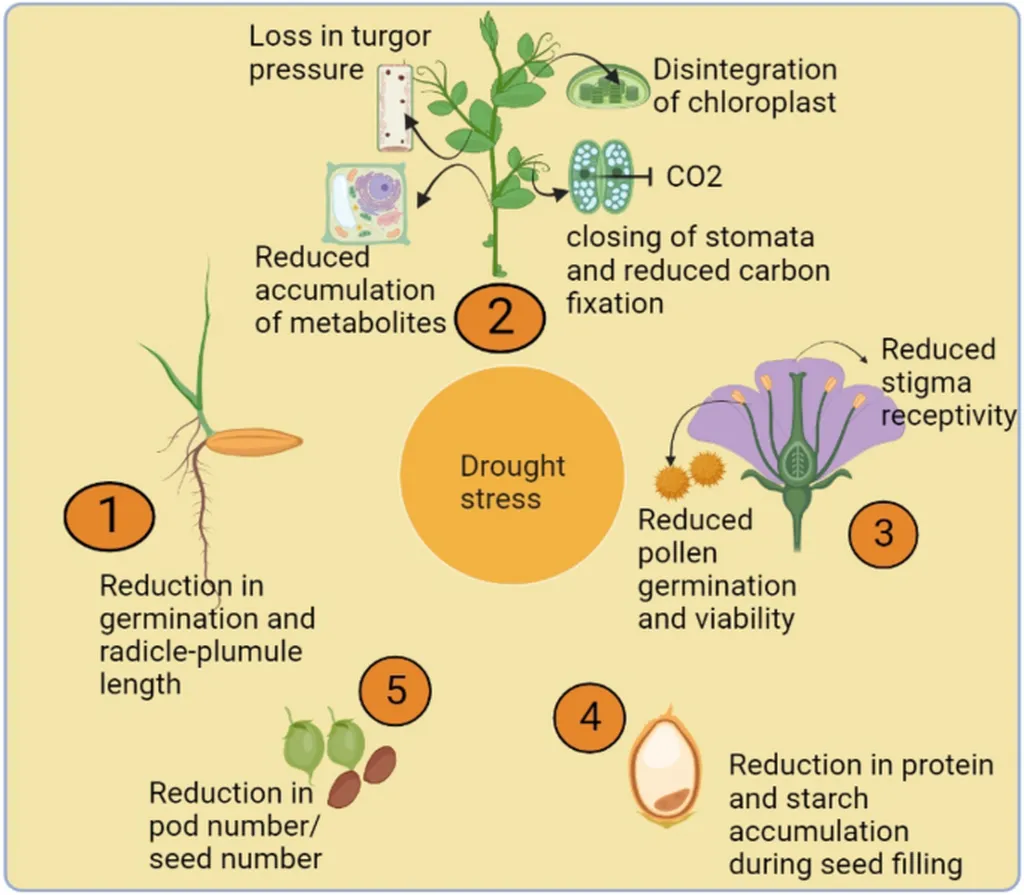In the heart of India’s capital, a team of researchers led by Neteti Siddartha Kumar at the Indian Agricultural Research Institute (IARI) has unlocked new genetic insights that could revolutionize lentil farming, particularly in drought-prone regions. Their study, published in the journal ‘Current Plant Biology’ (translated as ‘Current Plant Biology’), delves into the genetic underpinnings of drought tolerance in lentils, offering a beacon of hope for farmers grappling with climate change.
Lentils, a staple crop in many parts of the world, face significant yield losses due to drought stress. The study evaluated 243 diverse lentil genotypes under both irrigated and drought conditions at the seedling stage. By restricting pre-sowing irrigation, the researchers simulated drought stress and measured 18 different morpho-physiological traits, including root characteristics, physiological responses, and growth metrics.
The results were striking. “All traits except canopy temperature were significantly reduced under stress,” Kumar noted. This finding underscores the profound impact of drought on lentil growth and development. However, the study also identified several genotypes, such as IC560032, IC560246, P3227, IC560051, and IG134349, that exhibited remarkable drought tolerance, as indicated by their Stress Susceptibility Index (SSI) values of less than 0.5.
The researchers employed genome-wide association mapping to identify significant marker-trait associations for drought tolerance traits. They discovered 65 and 71 distinct SNPs (single nucleotide polymorphisms) significantly associated with various traits under control and drought conditions, respectively. These genetic markers provide valuable tools for breeders to develop drought-tolerant lentil varieties.
Moreover, the study pinpointed putative candidate genes involved in regulating key drought tolerance traits. “Genes encoding legumain-like cysteine endopeptidase, L-ascorbate oxidase, and auxin-responsive proteins were found to be crucial in the regulation of germination percentage, root length, and seedling vigor,” Kumar explained. These findings not only enhance our understanding of the genetic basis of drought tolerance but also pave the way for targeted genetic engineering and marker-assisted breeding programs.
The implications of this research extend far beyond the laboratory. For farmers in South Asia, West Asia, and North Africa, where lentils are a vital crop, these findings offer a lifeline. By developing drought-tolerant lentil varieties, farmers can mitigate yield losses and ensure food security in the face of climate change. Additionally, the commercial potential for the energy sector is significant. Lentils are not only a nutritious food source but also a valuable feedstock for bioenergy production. Drought-tolerant varieties can enhance the sustainability and profitability of bioenergy crops, contributing to a greener future.
As the world grapples with the challenges of climate change and food security, this research shines a light on the power of genetic innovation. By harnessing the natural diversity of lentil germplasm and leveraging advanced genetic techniques, we can cultivate resilience in our crops and secure a sustainable future for generations to come. The study published in ‘Current Plant Biology’ is a testament to the transformative potential of agritech research and its ability to shape the future of agriculture.

